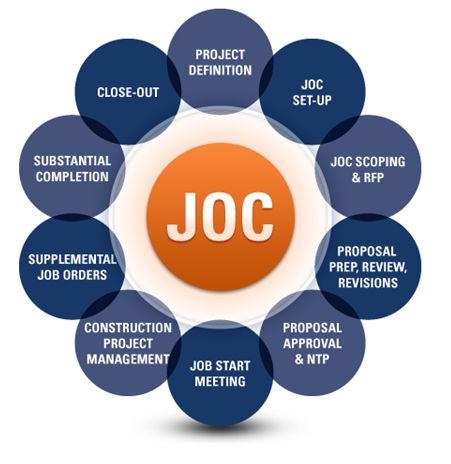What is an IDIQ?
Indefinite delivery/indefinite quantity (IDIQ) contracts has been a useful tool in federal government acquisition for many years.
IDIQ contracts had historically been used only as single award contracts to procure services or supplies until the Federal Acquisition Streamlining Act (FASA) of 1994, noting the value of multiple award contracts. Additionally the court system determined that IDIQ contracts were applicable to construction and architect-engineering services, provided the selection of contractors and placement of orders are consistent with the Federal Acquisition Regulation Part 36.
Multiple forms of both multiple and single award construction IDIQ contracts are available as well as software to enable rapid implementation and consistent deployment. Examples of multiple awards are multiple award construction contracts (MACC) and multiple award task order contracts (MATOC). Single awards include job order contracts / job order contracting (JOC) and simplified acquisition of base engineer requirements (SABER). SABER is the US Air Force implementation of JOC.
Multiple awards result in individual job tasks for which all awardees compete and are negotiated and priced per the specific requirement. Single awards and multiple awards are typically priced using detailed line item cost estimating provided specific to the IDIQ. Commercial, industry standard unit price books may be use, such as RSMeans Cost Books or “custom” IDIQ price books. Both may be referred to a Unit Price Book (UPB), or an IDIQ price book/guide. It is important that both the Owner and the Contractor have unit line item cost estimating capability. It is generally regarded as “best practice” and may even be a regulatory requirement that the Owner does their own internal estimate (sometimes referred to as an Independent Government Estimate – IGE). Some Owners for specific forms of IDIQ, such as JOC for example, may elect to “outsource” or subcontract the JOC program to a third party for a fee (typically a percentage of the overall JOC program annually). In this instance the third party acts as an “owner’s agent” and works with the Contractors directly, vs. Owner “hands-on” participation. The latter is not recommend, nor consistent with “pure” JOC program implementation. It may however be the only option for Owners with limited technical estimating and/or project/program management capabilities.
Additionally, multiple awards are forms of design-build for complex projects, typically $750,000 to $5 million. Single awards involve minimum design for non-complex projects that typically range from $2,000 to $750,000. However multi-year JOC/SABER programs can easily exceed $300 million. Many JOC/SABER and IDIQ contacts involve a base year and three or four year options. This means that the owner/contractor relationship is long term, with no need to re-solicit for five years, a potential benefit for all parties.
Construction IDIQ contracts provide a streamlined means to complete projects with benefits for both the government ‘/ public agency (DOD, non-DOD Federal Government, State/County/Local Government, Airports, Education, Healthcare, and the commercial business (Contractor/AE).



I have been a team lead for a federal contractor for the F.A.A for the last 10 years.I now own my own company, and would like to find out how to become a I.D.I.Q contractor?
Hello Monte,
Give me a call @ 781.983.1128 and/or send me a email @ pcholakis@4Clicks.com
I’d love to chat. BTW, the FAA East Coast is just beginning a new JOC IDIQ up and down the Eastern Coast from Maine to Puerto Rico, etc.